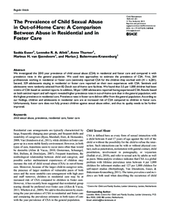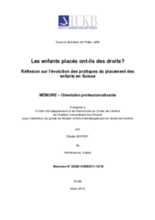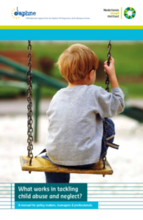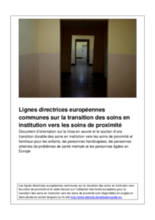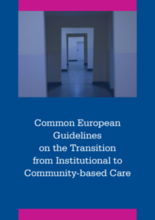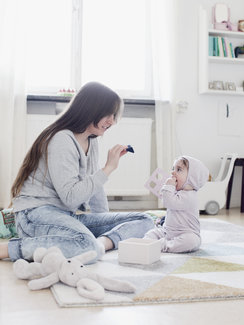

Displaying 361 - 370 of 423
Lorsque le maintien de l'enfant dans son milieu familial n'est pas possible, le mineur est à la demande de ses parents ou sur décision judiciaire, pris en charge par le Département. Plusieurs solutions peuvent être envisagées pour l'enfant, comme par exemple le placement en famille d'accueil.
Researchers investigated the prevalence of child sexual abuse in foster care and residential care facilities and found that 3.5 children per 1,000 had been victims of child sexual abuse.
The handbook of the United Nations approved Guidelines for the Alternative Care of Children is to be launched on March 7th, 2013 3:00-4:30pm at Room XXII, Human Rights Council, Palais des Nations, Geneva. The handbook provides practical guidance on moving forward on the road to alternative care provision for children. It highlights implications for policy-making where national governments should provide leadership as well as provides links to what is already being effectively done on the ground.
Ce travail s’intéresse particulièrement aux violences dont les enfants placés en institutions sont l’objet, entre les maltraitances structurelles propres à l’institutionnalisation, et les maltraitances qu’elles soient physiques, psychiques ou sexuelles. Pour lutter contre ces différentes formes de violence, il conviendra de repenser les institutions actuelles et de chercher des alternatives au placement.
This Recommendation by the European Commission on Investing in Children, stresses the importance of early intervention and preventative approaches, and makes quality childcare one of its key policy areas to break the cycle of disadvantage in early years and reduce the risk of child poverty and social exclusion.
L’inspection générale des services judiciaires (IGSJ) et celle des affaires sociales (IGAS) assistées de l’inspection de la protection judiciaire de la jeunesse (IPJJ) ont été saisies par les Ministres de la Justice et des Affaires sociales et de la Santé d’une mission d’évaluation des centres éducatifs fermés (CEF) dans le dispositif de prise en charge des mineurs délinquants.
This article focuses on the structural similarities and dissimilarities that exist between child protection systems in France and Switzerland, as exemplified by the evolutions of the last decade.
This manual is the main outcome of the European Commission Daphne III programme, Prevent and Combat Child Abuse: What works? Involving regional exchanges and research from five countries (Germany, Hungary, Portugal, Sweden and the Netherlands), this manual brings together knowledge on what works in tackling child abuse. The manual suggests evidence and practice-based prevention and response strategies against child abuse and neglect, including programs and services that have been shown to be successful in strengthening family care.
Document d’orientation sur la mise en œuvre et le soutien d’une transition durable des soins en institution vers les soins de proximité et familiaux pour les enfants, les personnes handicapées, les personnes atteintes de problèmes de santé mentale et les personnes âgées en Europe.
The Common European Guidelines on the Transition from Institutional to Community-based Care (‘the Guidelines’) provide practical advice about how to make a sustained transition from institutional care to family-based and community-based alternatives for individuals (including children) currently living in institutions and those living in the community, often without adequate support.

